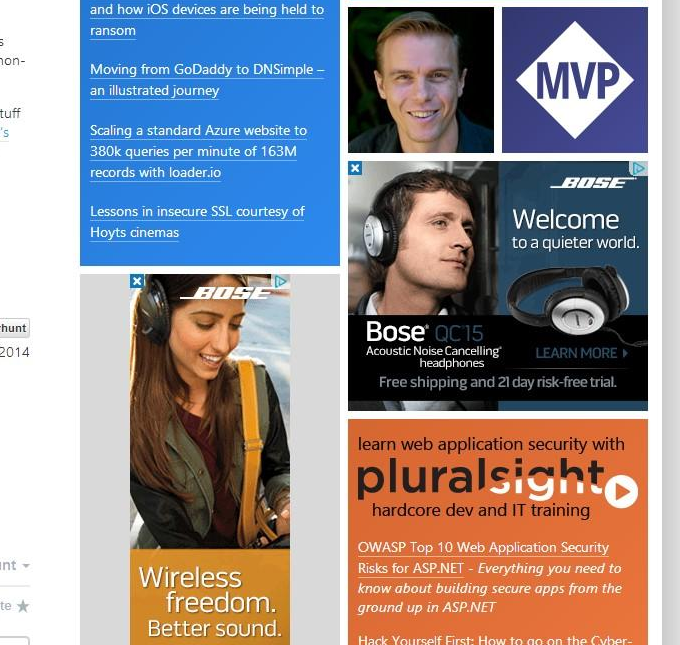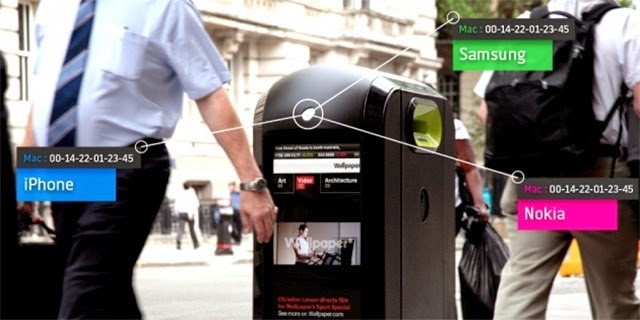We’ve become accustomed to the whole idea of us being electronically tracked based on our various personal habits. In fact just the other day I was asking online about Bose headphones, did a couple of searches then next thing I knew, my own blog was plugging them to me:

But again, we’ve got a bit of a sense of tracking cookies now and that the same ad networks operate across seemingly independent websites therefore providing the ability to track and target information.
Ratchet up the tracking feature a notch and before you know it, rubbish bins are monitoring your movements by watching for the signals your phone sends when looking for wifi connections:

Still not creepy enough? How about Tesco in the UK tracking your comings and goings using facial recognition:

So what’s the value proposition of all this data? I mean why track movements across websites, which bins you’re walking past or when you return to a store? Because consumer trends are enormously important pieces of data when it comes to retail stores tailoring products and targeting customers.
We’re only just warming up though, here’s a piece I recorded recently with our local ABC 7:30 Report that just went to air last night:
The key thing to take away from this is that as a single conglomerate expands their reach across discrete and disparate services, if they can correlate customer behaviour then they can draw insights you’d never reasonably expect them to have access to. We’re seeing supermarket chains owning everything from liquor shops to service stations to office supply stores which is a fairly broad range of services, but all in the retail sector. Now throw into the mix services like banking and insurance and suddenly things start to get really interesting.
You shop at the supermarket and you give them your loyalty card because you’re constantly told that this practice will give you some amount of monetary return. It also gives the supermarket the ability to monitor your purchasing habits. Now keep in mind that you are a known quantity; your name, your contact details and various other personally identifiable data points about you as an individual.
Now you go and apply for insurance with an organisation that has access to this data, whether that be because both companies are under the same umbrella or that the fine print none of us ever read when you signed up for the loyalty card said it could be shared with partners. You buy too much crap – soft drinks, chips, high-fat foods – and you’re also buying vitamins to treat high blood pressure and elevated cholesterol. Then you apply for life insurance.
Or perhaps your shopping habits put you squarely into a particular ethnic bracket; the foods you eat, the magazines you buy, the medicines you choose and so on and so forth. Studies show this ethnic group also has a higher propensity of at-fault claims on their motor vehicle insurance. Now you want to insure your new wheels.
Of course this could go the other way too – perhaps your shopping habits suggest you’re exceptionally healthy or that you’re in a demographic that has a very low vehicle accident rate. But either way, the conclusions are being drawn by data you simply didn’t expect the service provider to have, certainly you didn’t explicitly consent to it.
Inevitably there are two sides to this story: what the technology allows retailers to do and what they’re actually doing in practice. I can only speak to the former, but the earlier examples should leave you under no illusions as to the value of doing the latter and frankly, that’s the assumption we have to make.